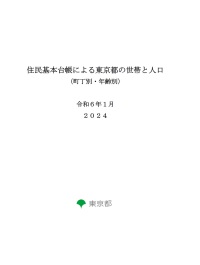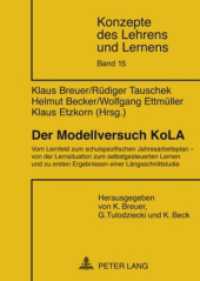- ホーム
- > 洋書
- > 英文書
- > History / World
Full Description
#Slaveryarchive Book Prize 2024 finalist
Emancipatory Narratives & Enslaved Motherhood examines three major currents in the historiography of Brazilian slavery: manumission, miscegenation, and creolisation. It revisits themes central to the history of slavery and race relations in Brazil, updates the research about them, and revises interpretations of the role of gender and reproduction within them. First, about the preponderance of women and children in manumission; second, about the association of black female mobility with intimate inter-racial relations; third, about the racialised and gendered routes to freed status; and fourth, about the legacies of West African female socio-economic behaviours for modalities of family and freedom in nineteenth-century Salvador da Bahia, Brazil.
The central concern within the book is how African and African descendant women navigated enslaved motherhood and negotiated the divide between enslavement and freedom for themselves and their children. The book is, therefore, organised around the subject position of the enslaved mother and the reproduction of her children in enslavement, while the condition of enslaved motherhood is examined through overlapping historical praxis evidenced in nineteenth-century Bahia: contested freedom, racialised mothering, and competing maternal interests - biological, ritual, surrogate. The point at which these interests converged historically was, it is argued, a conflict over black female reproductive rights.
Contents
Figures
INTRODUCTION
PART I
Emancipatory narratives and enslaved motherhood
Introduction
1.
"An act so meritorious and humanitarian"
2. "Despite
all the benefits given to her by my family"
Conclusion
PART II
Enslaved children, free/d children
Introduction
3.
"They can bring, with less risk of detection, a
greater number"
4. "To
forever enjoy his freedom"
Conclusion
PART III
Enslaved mother, enslaver father
Introduction
5.
"She was mistress of the house"
6. "I
must declare this house is hers"
Conclusion
PART IV
African mothers, Brazilian daughters
Introduction
7.
"Because they are always intertwined"
8. "Having
raised her as my daughter"
Conclusion
EPILOGUE
Appendix
Bibliography








